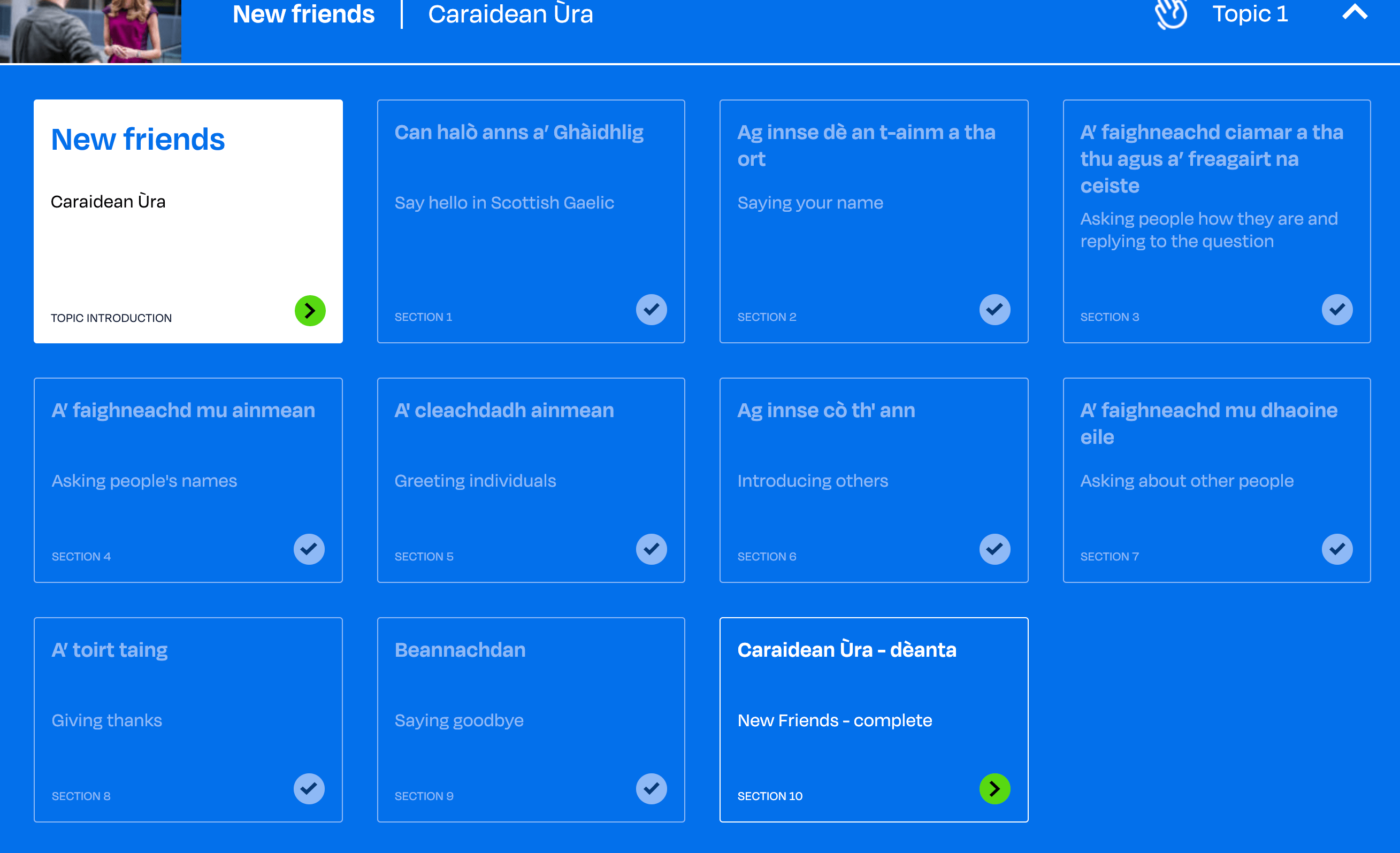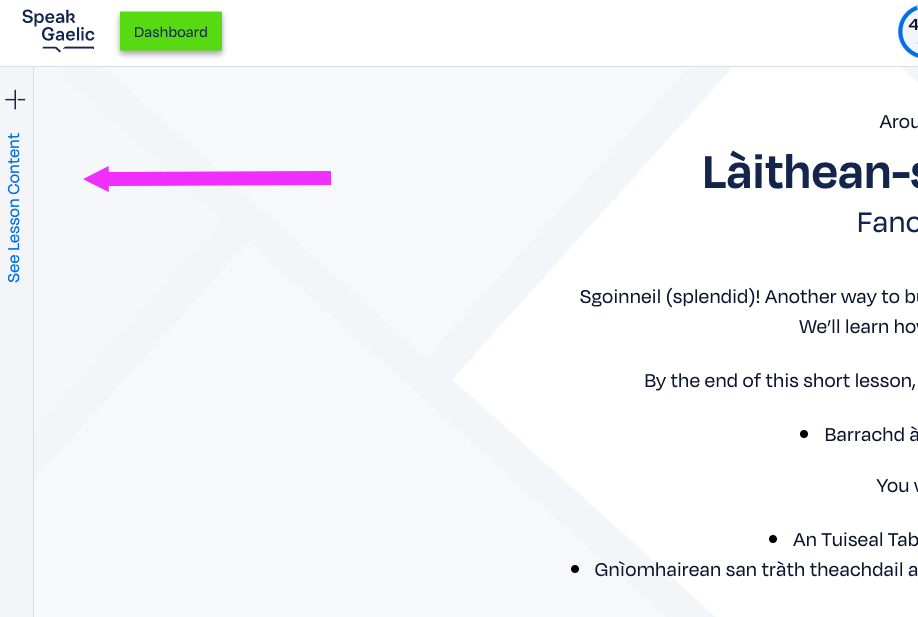Bilingual transcription: Nam b’ urrainn dhut…
Bilingual transcription: If you could…
Watch this clip where Joy gives us some of her useful tips and favourite phrases.
JOY
Nach tòisich sinn le ceist? Nam b’ urrainn dhut a dhol a dh’àite sam bith, càit an rachadh tu?
If you could go anywhere, where would you go?
We’re using the conditional tense here; and by that I mean the tense which is usually expressed in English as ‘would’ or ‘could’.
Let’s take this question in two parts.
The first part, in the conditional tense, is straightforward enough.
Nam b’ urrainn dhut …, If you could, Nam b’ urrainn dhut. Nam b’ urrainn dhut a dhol a dh’àite sam bith, If you could go anywhere…
When we form the conditional tense of a regular verb, we add a new ending to the root form, and that ending is either –adh or –eadh.
In the second part of the question which was: Càit an rachadh tu? I used rachadh, would go: Where would you go? Càit an rachadh tu?
Your reply to that question would start with:
Rachainn … I would go … Rachainn … followed by wherever it is you would go.
Mar eisimpleir dh’fhaodadh tu freagairt:
Rachainn a Chanada. I’d go to Canada. Rachainn a Chanada.
Now, a word or two about irregular verbs. rach is one of Gaelic’s ten irregular verbs, and one of its interesting little quirks is that there are two versions in the conditional tense, depending on dialect. Rachadh is very close to the root Rach but possibly the more common conditional form is:
dheigheadh, would go, dheigheadh.
The question form of dheigheadh would be:
Càit/an deigheadh tu? Where would you go? Càit an deigheadh tu?
And to respond to that, you would answer:
Dheighinn … I would go … dheighinn … followed by wherever it is you would go.
Mar eisimpleir, nam biodh tu a’ dol a Chanada…
Dheighinn a Chanada. Dheighinn a Chanada.
Now, fortunately for us, rach, which includes a’ dol, chaidh, and thèid is such a common verb that you’ll get plenty of opportunites to hear it and use it when you’re speaking. Trust me, it should soon become very familiar!




